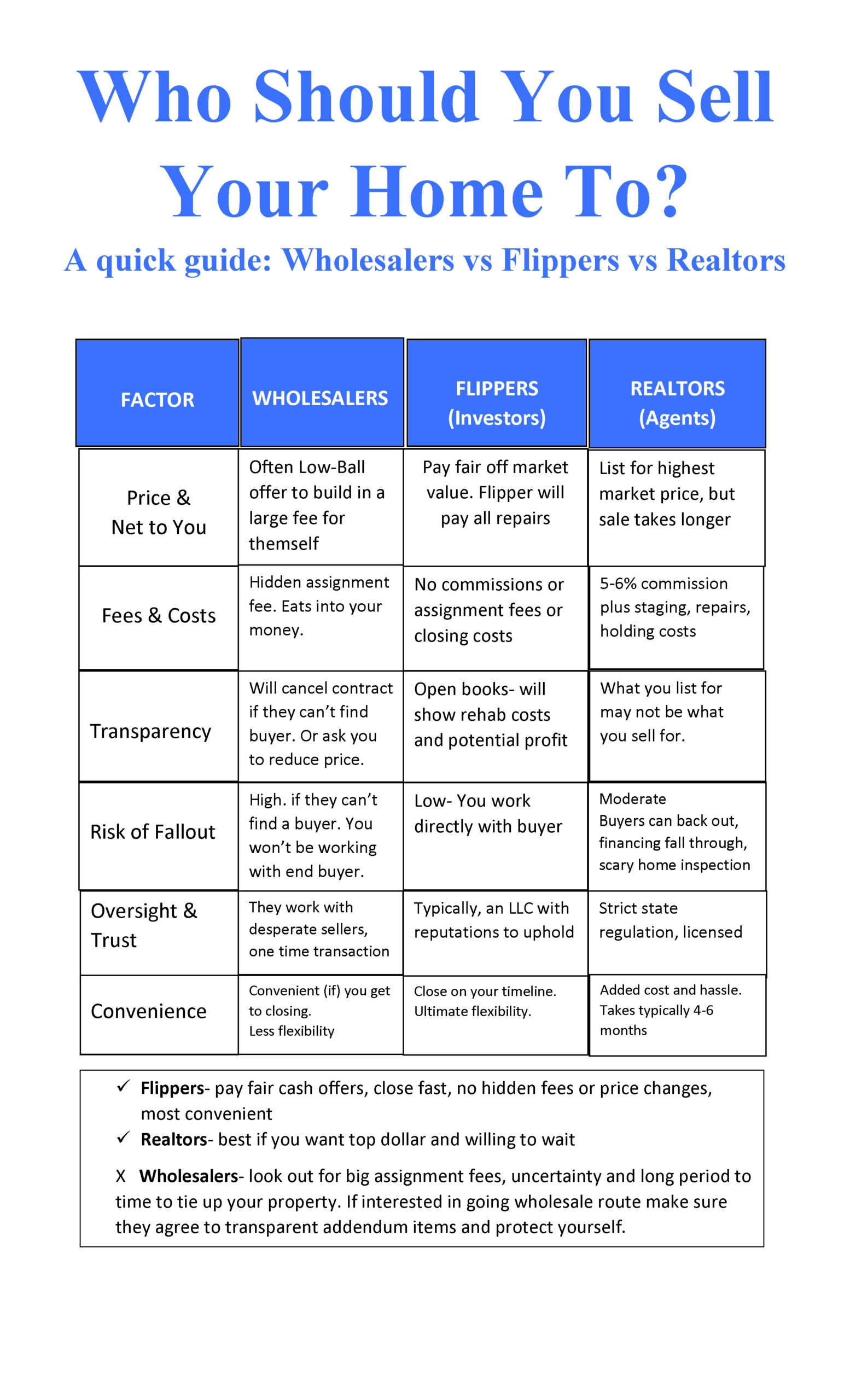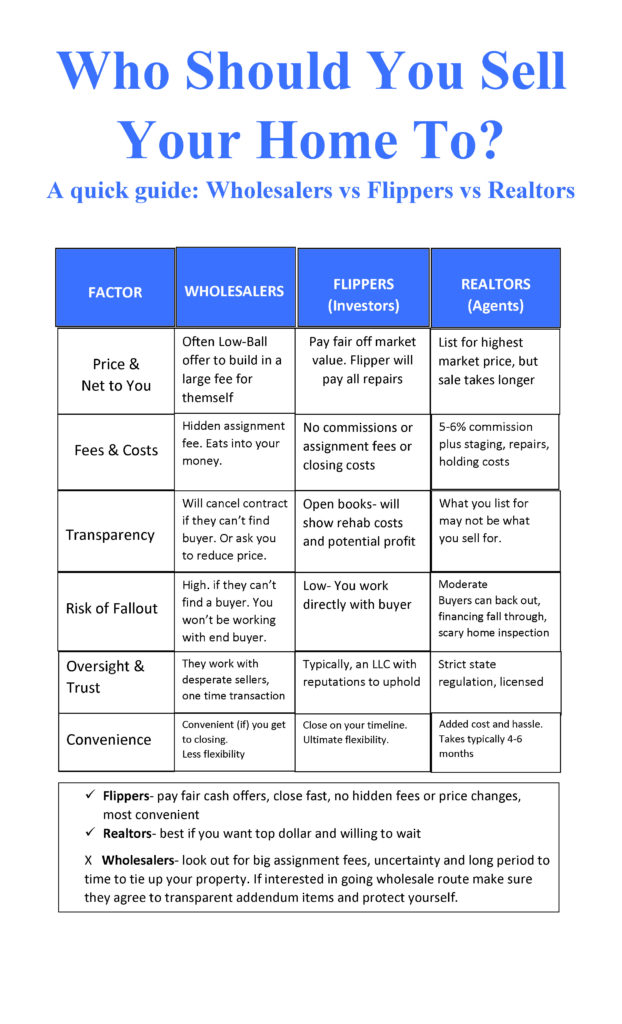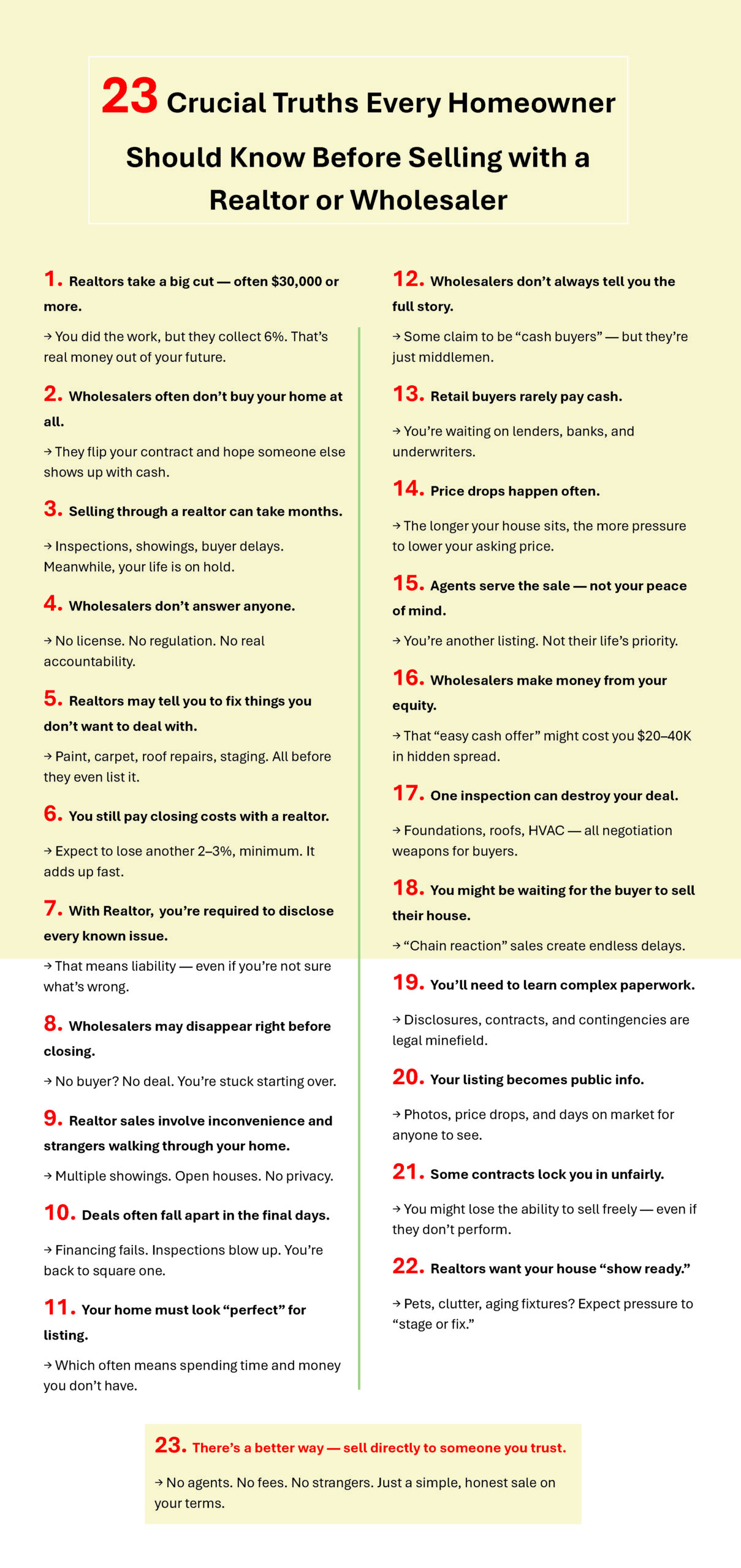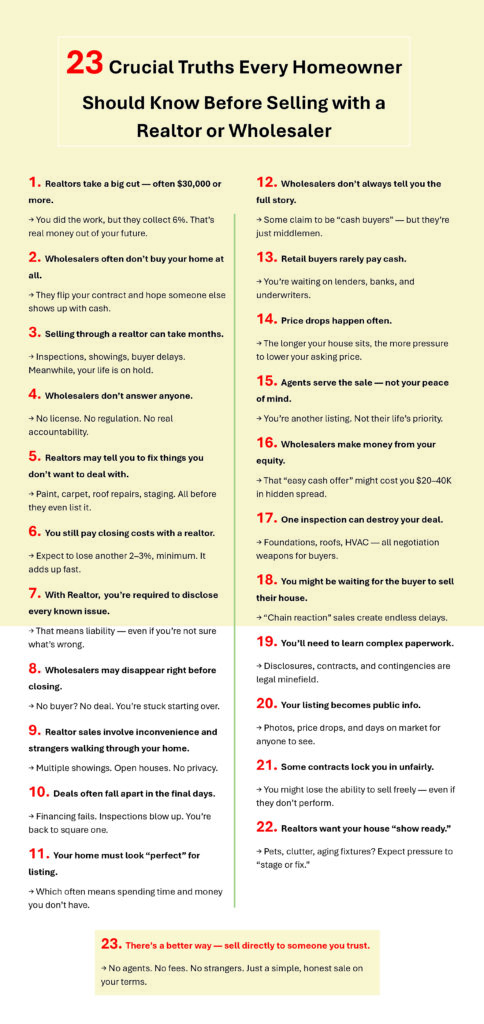“Why Couples Choose Cash Buyers During Divorce or Separation”

Divorce and separation are some of life’s most challenging transitions emotionally, practically, and financially. One of the biggest decisions many couples face during this process is what to do with the family home. For numerous couples, selling a house becomes a part of moving forward. In situations like these, choosing a cash buyer can offer simplicity, speed, and clarity when traditional selling methods might feel overwhelming.
Below, we’ll explore why many couples decide to sell to a cash buyer during divorce or separation and how that choice can support a smoother transition.
1. A Cash Sale Can Simplify a Complex Emotional Process
Emotional stress and conflict can make every decision harder. For many couples, the house represents years of memories which can create emotional barriers to listing on the open market.
Selling to a cash buyer often means:
A straightforward offer without repeated showings
No ongoing negotiations or staging the home
Fewer decisions to make together during an already strained time
Why this matters: The simplicity of a cash sale reduces triggers and repetitive conversations that can prolong emotional strain — something divorced or separating couples already face. saveoursavings.org
2. Fast Closings Provide Closure Sooner
Traditional home sales can take months to finalize especially with financing contingencies, appraisals, and inspection negotiations. For couples in divorce or separation, that delay can:
Stall the legal settlement
Extend financial entanglement
Keep couples connected longer than desired
In contrast, cash buyers can often close in as little as 7–14 days, giving both parties quicker access to funds and the ability to divide assets and move forward. Finest Home Buyers
Benefits of a fast close:
Quick access to equity
Faster legal and financial resolution
Immediate ability to pursue separate living arrangements
3. Cash Buyers Buy the House “As‑Is” No Repairs Needed
Preparing a home for the traditional market often means repairs, upgrades, and staging — all of which cost time and money. When you’re navigating divorce or separation, these steps can feel overwhelming.
One of the biggest perks of selling to a cash buyer is that you typically don’t need to fix anything before closing. Cash buyers will purchase in as‑is condition, which:
Removes disagreements about who pays for repairs
Saves thousands in renovation and staging costs
Avoids delays waiting for contractors or permits saveoursavings.org
For many couples, this can make the process less contentious and more predictable.
4. Avoiding Realtor Commissions and Extra Fees Keeps More Equity
Traditional real estate sales often involve realtor fees, commissions, and additional closing costs that can reduce how much each spouse receives from the sale. In contrast, a cash sale usually minimizes or eliminates many of these expenses.
This means:
More of the sale proceeds remain available to split
Fewer financial surprises during settlement
Reduced ongoing costs while waiting for a buyer houstonareahomecashbuyers.com
For couples already dividing assets, these savings can make a significant difference.
5. A Cash Sale Reduces Risk of a Fall‑Through Deal
One common frustration with traditional offers is their reliance on financing approvals. A buyer’s loan can fall through at any stage, which resets the timeline and brings more uncertainty.
With a qualified cash buyer:
No mortgage approval is required
The sale isn’t contingent on financing hurdles
You avoid repeated waiting and potential cancellations Homeinc
This certainty can be especially valuable in divorce when legal timelines or personal plans hinge on the sale going through.
6. During Divorce Flexibility Can Align With Your Unique Separation Timeline
Every divorce or separation is different — and timing matters. Cash buyers are often more flexible in terms of:
Closing dates that fit your legal or personal needs
Handling of personal belongings left in the home
Adjusting to scheduling needs without multiple showings
This flexibility allows couples to sell on their terms rather than fitting into a drawn‑out traditional timeline. Finest Home Buyers
7. Starting Fresh Without Financial Ties
For many couples, keeping the home isn’t feasible — either because neither partner can afford it alone, or because maintaining joint ownership creates ongoing complications. A cash sale provides a clean financial break, allowing both individuals to:
Pay off debts tied to the house
Divide proceeds fairly
Move forward independently
This clean break can be a powerful step in creating emotional closure and financial clarity. Senna House Buyers
Making the Best Decision for Your Future
If you and your spouse are considering your options during a divorce or separation, understanding the benefits of selling to a cash buyer is an important step. While traditional listings may work well in some situations, a cash sale can offer speed, simplicity, and reduced stress when life feels complex and uncertain.
For tailored solutions and compassionate support, consider exploring options with Steve and Stacy Buy Homes whether you want to understand more about cash sales or explore alternatives that fit your situation.
Every couple’s journey is unique. Taking time to weigh your options with trusted information can help you sell your house in a way that supports both your emotional well‑being and financial stability.

If you have questions about selling your home or have more questions about our services, please give us a call or complete the form below









